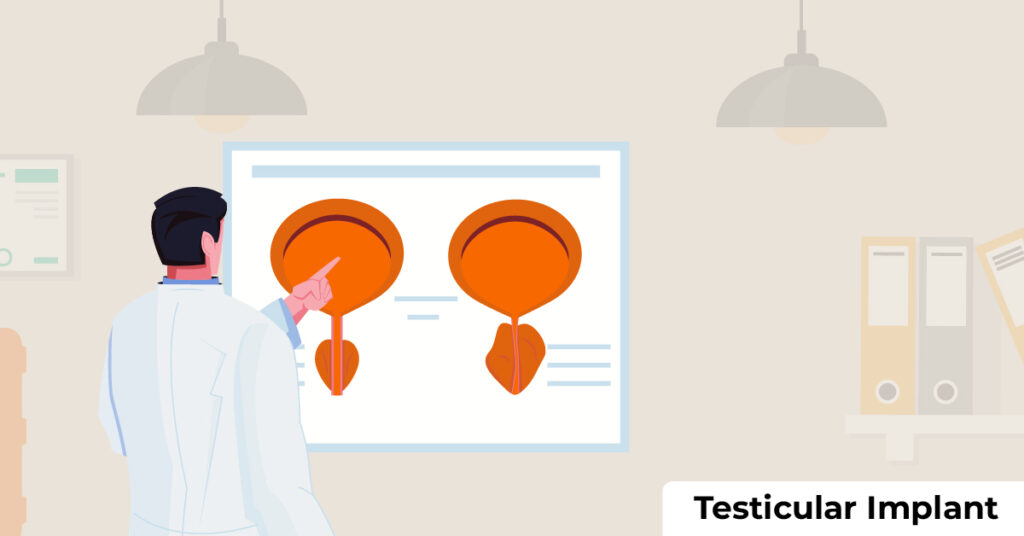
QUES 1 WHAT IS A TESTICULAR PROSTHESIS?
Ans. A prosthesis is any artificial device used to replace a body part. When a male is either born without a testicle or must have one removed because of an injury or disease, a testicular prosthesis can be used to fill in the empty space in the scrotum. A prosthesis is used only to improve appearance and calm psychological fears. It doesn’t have any functions of a real testicle.
QUES 2 WHAT CONDITIONS OR EVENTS CAN CAUSE A MISSING TESTICLE?
Ans. There are several reasons that someone might be missing a testicle
- The testicle being malformed or missing at birth.
- It being surgically removed due to injury, such as severe torsion (twisting).
- There being a failure to descend into the scrotum.
- The testicle being removed due to infection.
- The testicle being removed in order to treat testicular cancer.
- A testicular prosthesis may also be considered as a part of female-to-male gender reassignment surgery
- What are the characteristics of a good testicular prosthesis?
- The ideal testicular prosthesis should:
- Have no chemical reactivity.
- Not cause inflammation.
- Resist mechanical stress.
- Be sterile.
- Be able to take on and hold the correct shape.
- Feel comfortable.
QUES 3 WHAT PROCEDURE IS USED TO IMPLANT A TESTICULAR PROSTHESIS?
Ans. When you’re deciding to have this procedure, it’s important to find a surgeon who specializes in testicular prosthesis implantation.
In general, the procedure to implant a testicular prosthesis involves:
Placing the patient under either general (whole body) or local anaesthesia (pain-blocking medication) that will prevent any feelings of pain in the lower part of the body during the procedure.
- Making an incision in the lower part of the groin or upper scrotum.
- Creating a pouch for the prosthesis.
- Sewing or otherwise fixing the implant into place in the correct position.
- Closing the incision with stitches.
QUES 4 WHO IS AT HIGH RISK OF COMPLICATIONS FROM TESTICULAR PROSTHESIS IMPLANTATION?
Ans. There are always risks when you have a medical procedure. However, if you have certain conditions before your procedure, you may have a higher chance of developing complications than those without medical conditions.
Medical conditions that could cause you to face a higher risk of complications can include:
- Having diabetes or a suppressed immune system. People with these conditions have an increased risk of infection.
- Having an existing infection anywhere in your body.
- Having had a previous surgery on the scrotum.
- What are possible complications of testicular prosthesis implantation surgery?
- There are several possible complications of testicular prosthesis implantation surgery, including:
- Pain.
- Infection.
- Hematoma (pooling of blood in the scrotum).
- Dissatisfaction with appearance following surgery.
- Scarring around the implant.
- Shifting of the prosthesis out of position.
- Rupture or leaking of the prosthesis.
- The prosthesis being expelled from the body (this usually means that the device is infected).
QUES 5 WHAT IS THE OUTLOOK FOR SOMEONE WITH A TESTICULAR PROSTHESIS?
Ans. There have been concerns about cancer and connective tissue disease resulting from the use of silicone implants. This has been the case with some silicone breast implants. Generally, the prostheses used in this procedure are either a silicone block (hard silicone throughout) or saline-filled. For this reason, the risks stated above for silicone gel-filled breast implants are not a concern. Talk to your healthcare provider about the type of implant used in your procedure and any risks associated with that implant.
